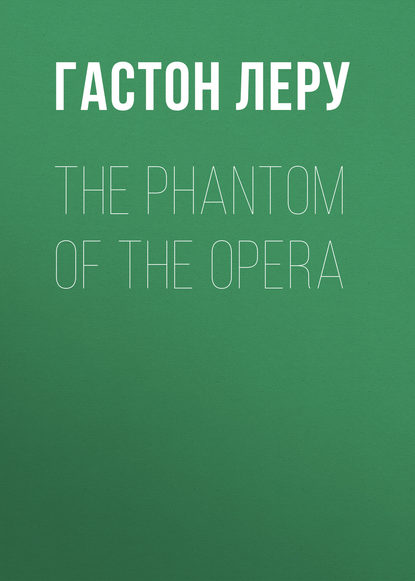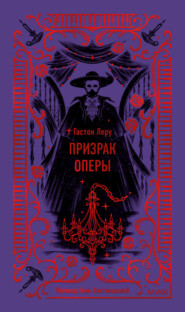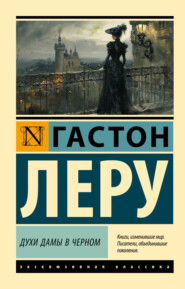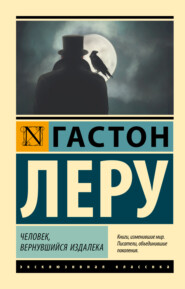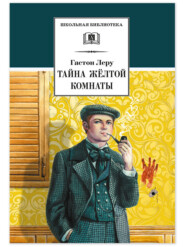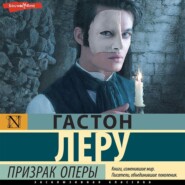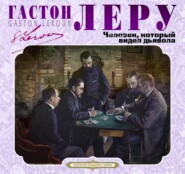По всем вопросам обращайтесь на: info@litportal.ru
(©) 2003-2024.
✖
The Phantom of the Opera
Автор
Год написания книги
2018
Настройки чтения
Размер шрифта
Высота строк
Поля
"Is it some one belonging to the theater police?" asked Raoul.
"It's some one much worse than that!" replied the Persian, without giving any further explanation.[5 - Like the Persian, I can give no further explanation touching the apparition of this shade. Whereas, in this historic narrative, everything else will be normally explained, however abnormal the course of events may seem, I can not give the reader expressly to understand what the Persian meant by the words, "It is some one much worse than that!" The reader must try to guess for himself, for I promised M. Pedro Gailhard, the former manager of the Opera, to keep his secret regarding the extremely interesting and useful personality of the wandering, cloaked shade which, while condemning itself to live in the cellars of the Opera, rendered such immense services to those who, on gala evenings, for instance, venture to stray away from the stage. I am speaking of state services; and, upon my word of honor, I can say no more.]
"It's not … he?"
"He? … If he does not come behind us, we shall always see his yellow eyes! That is more or less our safeguard to-night. But he may come from behind, stealing up; and we are dead men if we do not keep our hands as though about to fire, at the level of our eyes, in front!"
The Persian had hardly finished speaking, when a fantastic face came in sight … a whole fiery face, not only two yellow eyes!
Yes, a head of fire came toward them, at a man's height, but with no body attached to it. The face shed fire, looked in the darkness like a flame shaped as a man's face.
"Oh," said the Persian, between his teeth. "I have never seen this before! … Pampin was not mad, after all: he had seen it! … What can that flame be? It is not HE, but he may have sent it! … Take care! … Take care! Your hand at the level of your eyes, in Heaven's name, at the level of your eyes! … know most of his tricks … but not this one … Come, let us run … it is safer. Hand at the level of your eyes!"
And they fled down the long passage that opened before them.
After a few seconds, that seemed to them like long minutes, they stopped.
"He doesn't often come this way," said the Persian. "This side has nothing to do with him. This side does not lead to the lake nor to the house on the lake … But perhaps he knows that we are at his heels … although I promised him to leave him alone and never to meddle in his business again!"
So saying, he turned his head and Raoul also turned his head; and they again saw the head of fire behind their two heads. It had followed them. And it must have run also, and perhaps faster than they, for it seemed to be nearer to them.
At the same time, they began to perceive a certain noise of which they could not guess the nature. They simply noticed that the sound seemed to move and to approach with the fiery face. It was a noise as though thousands of nails had been scraped against a blackboard, the perfectly unendurable noise that is sometimes made by a little stone inside the chalk that grates on the blackboard.
They continued to retreat, but the fiery face came on, came on, gaining on them. They could see its features clearly now. The eyes were round and staring, the nose a little crooked and the mouth large, with a hanging lower lip, very like the eyes, nose and lip of the moon, when the moon is quite red, bright red.
How did that red moon manage to glide through the darkness, at a man's height, with nothing to support it, at least apparently? And how did it go so fast, so straight ahead, with such staring, staring eyes? And what was that scratching, scraping, grating sound which it brought with it?
The Persian and Raoul could retreat no farther and flattened themselves against the wall, not knowing what was going to happen because of that incomprehensible head of fire, and especially now, because of the more intense, swarming, living, "numerous" sound, for the sound was certainly made up of hundreds of little sounds that moved in the darkness, under the fiery face.
And the fiery face came on … with its noise … came level with them! …
And the two companions, flat against their wall, felt their hair stand on end with horror, for they now knew what the thousand noises meant. They came in a troop, hustled along in the shadow by innumerable little hurried waves, swifter than the waves that rush over the sands at high tide, little night-waves foaming under the moon, under the fiery head that was like a moon. And the little waves passed between their legs, climbing up their legs, irresistibly, and Raoul and the Persian could no longer restrain their cries of horror, dismay and pain. Nor could they continue to hold their hands at the level of their eyes: their hands went down to their legs to push back the waves, which were full of little legs and nails and claws and teeth.
Yes, Raoul and the Persian were ready to faint, like Pampin the fireman. But the head of fire turned round in answer to their cries, and spoke to them:
"Don't move! Don't move! … Whatever you do, don't come after me! … I am the rat-catcher! … Let me pass, with my rats! …"
And the head of fire disappeared, vanished in the darkness, while the passage in front of it lit up, as the result of the change which the rat-catcher had made in his dark lantern. Before, so as not to scare the rats in front of him, he had turned his dark lantern on himself, lighting up his own head; now, to hasten their flight, he lit the dark space in front of him. And he jumped along, dragging with him the waves of scratching rats, all the thousand sounds.
Raoul and the Persian breathed again, though still trembling.
"I ought to have remembered that Erik talked to me about the rat-catcher," said the Persian. "But he never told me that he looked like that … and it's funny that I should never have met him before … Of course, Erik never comes to this part!"
[Illustration: two page color illustration]
"Are we very far from the lake, sir?" asked Raoul. "When shall we get there? … Take me to the lake, oh, take me to the lake! … When we are at the lake, we will call out! … Christine will hear us! … And HE will hear us, too! … And, as you know him, we shall talk to him!" "Baby!" said the Persian. "We shall never enter the house on the lake by the lake! … I myself have never landed on the other bank … the bank on which the house stands. … You have to cross the lake first … and it is well guarded! … I fear that more than one of those men—old scene-shifters, old door-shutters—who have never been seen again were simply tempted to cross the lake … It is terrible … I myself would have been nearly killed there … if the monster had not recognized me in time! … One piece of advice, sir; never go near the lake… And, above all, shut your ears if you hear the voice singing under the water, the siren's voice!"
"But then, what are we here for?" asked Raoul, in a transport of fever, impatience and rage. "If you can do nothing for Christine, at least let me die for her!" The Persian tried to calm the young man.
"We have only one means of saving Christine Daae, believe me, which is to enter the house unperceived by the monster."
"And is there any hope of that, sir?"
"Ah, if I had not that hope, I would not have come to fetch you!"
"And how can one enter the house on the lake without crossing the lake?"
"From the third cellar, from which we were so unluckily driven away. We will go back there now … I will tell you," said the Persian, with a sudden change in his voice, "I will tell you the exact place, sir: it is between a set piece and a discarded scene from ROI DE LAHORE, exactly at the spot where Joseph Buquet died… Come, sir, take courage and follow me! And hold your hand at the level of your eyes! … But where are we?"
The Persian lit his lamp again and flung its rays down two enormous corridors that crossed each other at right angles.
"We must be," he said, "in the part used more particularly for the waterworks. I see no fire coming from the furnaces."
He went in front of Raoul, seeking his road, stopping abruptly when he was afraid of meeting some waterman. Then they had to protect themselves against the glow of a sort of underground forge, which the men were extinguishing, and at which Raoul recognized the demons whom Christine had seen at the time of her first captivity.
In this way, they gradually arrived beneath the huge cellars below the stage. They must at this time have been at the very bottom of the "tub" and at an extremely great depth, when we remember that the earth was dug out at fifty feet below the water that lay under the whole of that part of Paris.[6 - All the water had to be exhausted, in the building of the Opera. To give an idea of the amount of water that was pumped up, I can tell the reader that it represented the area of the courtyard of the Louvre and a height half as deep again as the towers of Notre Dame. And nevertheless the engineers had to leave a lake.]
The Persian touched a partition-wall and said:
"If I am not mistaken, this is a wall that might easily belong to the house on the lake."
He was striking a partition-wall of the "tub," and perhaps it would be as well for the reader to know how the bottom and the partition-walls of the tub were built. In order to prevent the water surrounding the building-operations from remaining in immediate contact with the walls supporting the whole of the theatrical machinery, the architect was obliged to build a double case in every direction. The work of constructing this double case took a whole year. It was the wall of the first inner case that the Persian struck when speaking to Raoul of the house on the lake. To any one understanding the architecture of the edifice, the Persian's action would seem to indicate that Erik's mysterious house had been built in the double case, formed of a thick wall constructed as an embankment or dam, then of a brick wall, a tremendous layer of cement and another wall several yards in thickness.
At the Persian's words, Raoul flung himself against the wall and listened eagerly. But he heard nothing … nothing … except distant steps sounding on the floor of the upper portions of the theater.
The Persian darkened his lantern again.
"Look out!" he said. "Keep your hand up! And silence! For we shall try another way of getting in."
And he led him to the little staircase by which they had come down lately.
They went up, stopping at each step, peering into the darkness and the silence, till they came to the third cellar. Here the Persian motioned to Raoul to go on his knees; and, in this way, crawling on both knees and one hand—for the other hand was held in the position indicated—they reached the end wall.
Against this wall stood a large discarded scene from the ROI DE LAHORE. Close to this scene was a set piece. Between the scene and the set piece there was just room for a body … for a body which one day was found hanging there. The body of Joseph Buquet.
The Persian, still kneeling, stopped and listened. For a moment, he seemed to hesitate and looked at Raoul; then he turned his eyes upward, toward the second cellar, which sent down the faint glimmer of a lantern, through a cranny between two boards. This glimmer seemed to trouble the Persian.
At last, he tossed his head and made up his mind to act. He slipped between the set piece and the scene from the ROI DE LAHORE, with Raoul close upon his heels. With his free hand, the Persian felt the wall. Raoul saw him bear heavily upon the wall, just as he had pressed against the wall in Christine's dressing-room. Then a stone gave way, leaving a hole in the wall.
This time, the Persian took his pistol from his pocket and made a sign to Raoul to do as he did. He cocked the pistol.
And, resolutely, still on his knees, he wiggled through the hole in the wall. Raoul, who had wished to pass first, had to be content to follow him.
The hole was very narrow. The Persian stopped almost at once. Raoul heard him feeling the stones around him. Then the Persian took out his dark lantern again, stooped forward, examined something beneath him and immediately extinguished his lantern. Raoul heard him say, in a whisper:
"We shall have to drop a few yards, without making a noise; take off your boots."
The Persian handed his own shoes to Raoul.
"It's some one much worse than that!" replied the Persian, without giving any further explanation.[5 - Like the Persian, I can give no further explanation touching the apparition of this shade. Whereas, in this historic narrative, everything else will be normally explained, however abnormal the course of events may seem, I can not give the reader expressly to understand what the Persian meant by the words, "It is some one much worse than that!" The reader must try to guess for himself, for I promised M. Pedro Gailhard, the former manager of the Opera, to keep his secret regarding the extremely interesting and useful personality of the wandering, cloaked shade which, while condemning itself to live in the cellars of the Opera, rendered such immense services to those who, on gala evenings, for instance, venture to stray away from the stage. I am speaking of state services; and, upon my word of honor, I can say no more.]
"It's not … he?"
"He? … If he does not come behind us, we shall always see his yellow eyes! That is more or less our safeguard to-night. But he may come from behind, stealing up; and we are dead men if we do not keep our hands as though about to fire, at the level of our eyes, in front!"
The Persian had hardly finished speaking, when a fantastic face came in sight … a whole fiery face, not only two yellow eyes!
Yes, a head of fire came toward them, at a man's height, but with no body attached to it. The face shed fire, looked in the darkness like a flame shaped as a man's face.
"Oh," said the Persian, between his teeth. "I have never seen this before! … Pampin was not mad, after all: he had seen it! … What can that flame be? It is not HE, but he may have sent it! … Take care! … Take care! Your hand at the level of your eyes, in Heaven's name, at the level of your eyes! … know most of his tricks … but not this one … Come, let us run … it is safer. Hand at the level of your eyes!"
And they fled down the long passage that opened before them.
After a few seconds, that seemed to them like long minutes, they stopped.
"He doesn't often come this way," said the Persian. "This side has nothing to do with him. This side does not lead to the lake nor to the house on the lake … But perhaps he knows that we are at his heels … although I promised him to leave him alone and never to meddle in his business again!"
So saying, he turned his head and Raoul also turned his head; and they again saw the head of fire behind their two heads. It had followed them. And it must have run also, and perhaps faster than they, for it seemed to be nearer to them.
At the same time, they began to perceive a certain noise of which they could not guess the nature. They simply noticed that the sound seemed to move and to approach with the fiery face. It was a noise as though thousands of nails had been scraped against a blackboard, the perfectly unendurable noise that is sometimes made by a little stone inside the chalk that grates on the blackboard.
They continued to retreat, but the fiery face came on, came on, gaining on them. They could see its features clearly now. The eyes were round and staring, the nose a little crooked and the mouth large, with a hanging lower lip, very like the eyes, nose and lip of the moon, when the moon is quite red, bright red.
How did that red moon manage to glide through the darkness, at a man's height, with nothing to support it, at least apparently? And how did it go so fast, so straight ahead, with such staring, staring eyes? And what was that scratching, scraping, grating sound which it brought with it?
The Persian and Raoul could retreat no farther and flattened themselves against the wall, not knowing what was going to happen because of that incomprehensible head of fire, and especially now, because of the more intense, swarming, living, "numerous" sound, for the sound was certainly made up of hundreds of little sounds that moved in the darkness, under the fiery face.
And the fiery face came on … with its noise … came level with them! …
And the two companions, flat against their wall, felt their hair stand on end with horror, for they now knew what the thousand noises meant. They came in a troop, hustled along in the shadow by innumerable little hurried waves, swifter than the waves that rush over the sands at high tide, little night-waves foaming under the moon, under the fiery head that was like a moon. And the little waves passed between their legs, climbing up their legs, irresistibly, and Raoul and the Persian could no longer restrain their cries of horror, dismay and pain. Nor could they continue to hold their hands at the level of their eyes: their hands went down to their legs to push back the waves, which were full of little legs and nails and claws and teeth.
Yes, Raoul and the Persian were ready to faint, like Pampin the fireman. But the head of fire turned round in answer to their cries, and spoke to them:
"Don't move! Don't move! … Whatever you do, don't come after me! … I am the rat-catcher! … Let me pass, with my rats! …"
And the head of fire disappeared, vanished in the darkness, while the passage in front of it lit up, as the result of the change which the rat-catcher had made in his dark lantern. Before, so as not to scare the rats in front of him, he had turned his dark lantern on himself, lighting up his own head; now, to hasten their flight, he lit the dark space in front of him. And he jumped along, dragging with him the waves of scratching rats, all the thousand sounds.
Raoul and the Persian breathed again, though still trembling.
"I ought to have remembered that Erik talked to me about the rat-catcher," said the Persian. "But he never told me that he looked like that … and it's funny that I should never have met him before … Of course, Erik never comes to this part!"
[Illustration: two page color illustration]
"Are we very far from the lake, sir?" asked Raoul. "When shall we get there? … Take me to the lake, oh, take me to the lake! … When we are at the lake, we will call out! … Christine will hear us! … And HE will hear us, too! … And, as you know him, we shall talk to him!" "Baby!" said the Persian. "We shall never enter the house on the lake by the lake! … I myself have never landed on the other bank … the bank on which the house stands. … You have to cross the lake first … and it is well guarded! … I fear that more than one of those men—old scene-shifters, old door-shutters—who have never been seen again were simply tempted to cross the lake … It is terrible … I myself would have been nearly killed there … if the monster had not recognized me in time! … One piece of advice, sir; never go near the lake… And, above all, shut your ears if you hear the voice singing under the water, the siren's voice!"
"But then, what are we here for?" asked Raoul, in a transport of fever, impatience and rage. "If you can do nothing for Christine, at least let me die for her!" The Persian tried to calm the young man.
"We have only one means of saving Christine Daae, believe me, which is to enter the house unperceived by the monster."
"And is there any hope of that, sir?"
"Ah, if I had not that hope, I would not have come to fetch you!"
"And how can one enter the house on the lake without crossing the lake?"
"From the third cellar, from which we were so unluckily driven away. We will go back there now … I will tell you," said the Persian, with a sudden change in his voice, "I will tell you the exact place, sir: it is between a set piece and a discarded scene from ROI DE LAHORE, exactly at the spot where Joseph Buquet died… Come, sir, take courage and follow me! And hold your hand at the level of your eyes! … But where are we?"
The Persian lit his lamp again and flung its rays down two enormous corridors that crossed each other at right angles.
"We must be," he said, "in the part used more particularly for the waterworks. I see no fire coming from the furnaces."
He went in front of Raoul, seeking his road, stopping abruptly when he was afraid of meeting some waterman. Then they had to protect themselves against the glow of a sort of underground forge, which the men were extinguishing, and at which Raoul recognized the demons whom Christine had seen at the time of her first captivity.
In this way, they gradually arrived beneath the huge cellars below the stage. They must at this time have been at the very bottom of the "tub" and at an extremely great depth, when we remember that the earth was dug out at fifty feet below the water that lay under the whole of that part of Paris.[6 - All the water had to be exhausted, in the building of the Opera. To give an idea of the amount of water that was pumped up, I can tell the reader that it represented the area of the courtyard of the Louvre and a height half as deep again as the towers of Notre Dame. And nevertheless the engineers had to leave a lake.]
The Persian touched a partition-wall and said:
"If I am not mistaken, this is a wall that might easily belong to the house on the lake."
He was striking a partition-wall of the "tub," and perhaps it would be as well for the reader to know how the bottom and the partition-walls of the tub were built. In order to prevent the water surrounding the building-operations from remaining in immediate contact with the walls supporting the whole of the theatrical machinery, the architect was obliged to build a double case in every direction. The work of constructing this double case took a whole year. It was the wall of the first inner case that the Persian struck when speaking to Raoul of the house on the lake. To any one understanding the architecture of the edifice, the Persian's action would seem to indicate that Erik's mysterious house had been built in the double case, formed of a thick wall constructed as an embankment or dam, then of a brick wall, a tremendous layer of cement and another wall several yards in thickness.
At the Persian's words, Raoul flung himself against the wall and listened eagerly. But he heard nothing … nothing … except distant steps sounding on the floor of the upper portions of the theater.
The Persian darkened his lantern again.
"Look out!" he said. "Keep your hand up! And silence! For we shall try another way of getting in."
And he led him to the little staircase by which they had come down lately.
They went up, stopping at each step, peering into the darkness and the silence, till they came to the third cellar. Here the Persian motioned to Raoul to go on his knees; and, in this way, crawling on both knees and one hand—for the other hand was held in the position indicated—they reached the end wall.
Against this wall stood a large discarded scene from the ROI DE LAHORE. Close to this scene was a set piece. Between the scene and the set piece there was just room for a body … for a body which one day was found hanging there. The body of Joseph Buquet.
The Persian, still kneeling, stopped and listened. For a moment, he seemed to hesitate and looked at Raoul; then he turned his eyes upward, toward the second cellar, which sent down the faint glimmer of a lantern, through a cranny between two boards. This glimmer seemed to trouble the Persian.
At last, he tossed his head and made up his mind to act. He slipped between the set piece and the scene from the ROI DE LAHORE, with Raoul close upon his heels. With his free hand, the Persian felt the wall. Raoul saw him bear heavily upon the wall, just as he had pressed against the wall in Christine's dressing-room. Then a stone gave way, leaving a hole in the wall.
This time, the Persian took his pistol from his pocket and made a sign to Raoul to do as he did. He cocked the pistol.
And, resolutely, still on his knees, he wiggled through the hole in the wall. Raoul, who had wished to pass first, had to be content to follow him.
The hole was very narrow. The Persian stopped almost at once. Raoul heard him feeling the stones around him. Then the Persian took out his dark lantern again, stooped forward, examined something beneath him and immediately extinguished his lantern. Raoul heard him say, in a whisper:
"We shall have to drop a few yards, without making a noise; take off your boots."
The Persian handed his own shoes to Raoul.





